Tao Shu
Mutilmodal Feature Extraction and Attention-based Fusion for Emotion Estimation in Videos
Mar 18, 2023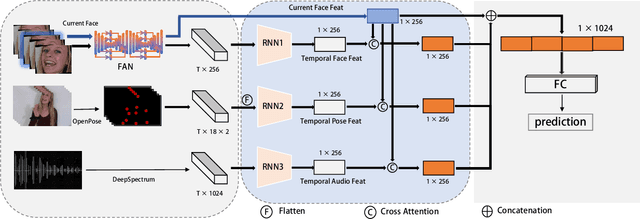


Abstract:The continuous improvement of human-computer interaction technology makes it possible to compute emotions. In this paper, we introduce our submission to the CVPR 2023 Competition on Affective Behavior Analysis in-the-wild (ABAW). Sentiment analysis in human-computer interaction should, as far as possible Start with multiple dimensions, fill in the single imperfect emotion channel, and finally determine the emotion tendency by fitting multiple results. Therefore, We exploited multimodal features extracted from video of different lengths from the competition dataset, including audio, pose and images. Well-informed emotion representations drive us to propose a Attention-based multimodal framework for emotion estimation. Our system achieves the performance of 0.361 on the validation dataset. The code is available at [https://github.com/xkwangcn/ABAW-5th-RT-IAI].
Dynamic Resource Allocation for Metaverse Applications with Deep Reinforcement Learning
Feb 27, 2023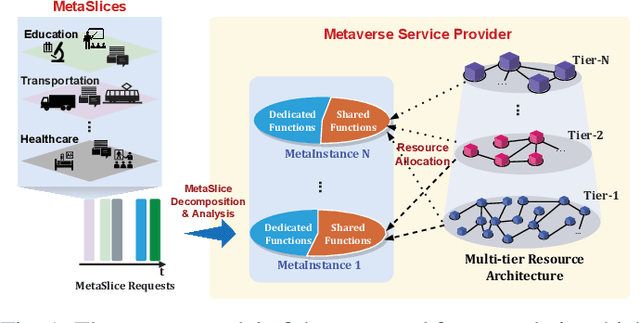
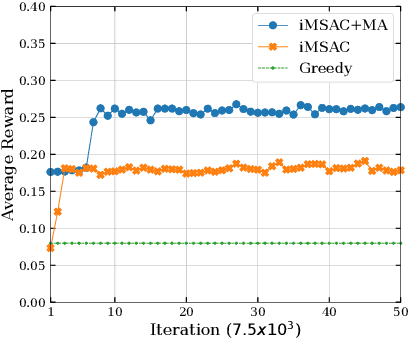
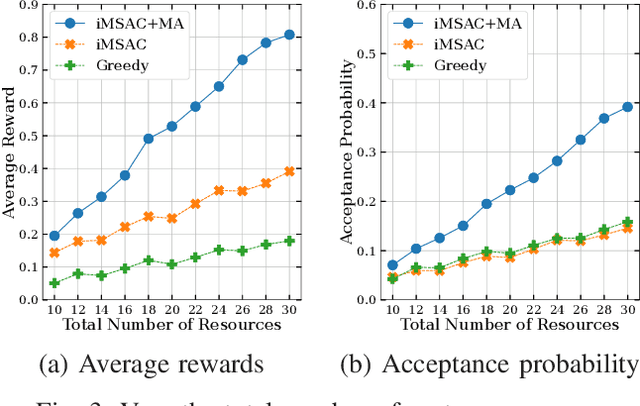
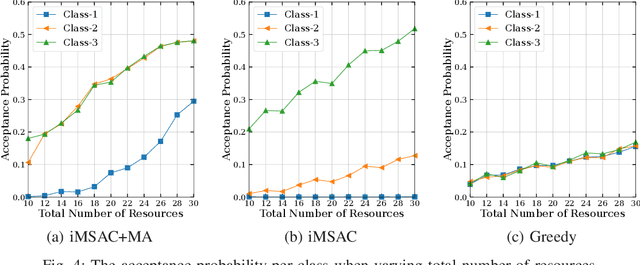
Abstract:This work proposes a novel framework to dynamically and effectively manage and allocate different types of resources for Metaverse applications, which are forecasted to demand massive resources of various types that have never been seen before. Specifically, by studying functions of Metaverse applications, we first propose an effective solution to divide applications into groups, namely MetaInstances, where common functions can be shared among applications to enhance resource usage efficiency. Then, to capture the real-time, dynamic, and uncertain characteristics of request arrival and application departure processes, we develop a semi-Markov decision process-based framework and propose an intelligent algorithm that can gradually learn the optimal admission policy to maximize the revenue and resource usage efficiency for the Metaverse service provider and at the same time enhance the Quality-of-Service for Metaverse users. Extensive simulation results show that our proposed approach can achieve up to 120% greater revenue for the Metaverse service providers and up to 178.9% higher acceptance probability for Metaverse application requests than those of other baselines.
Technical Report: Assisting Backdoor Federated Learning with Whole Population Knowledge Alignment
Jul 25, 2022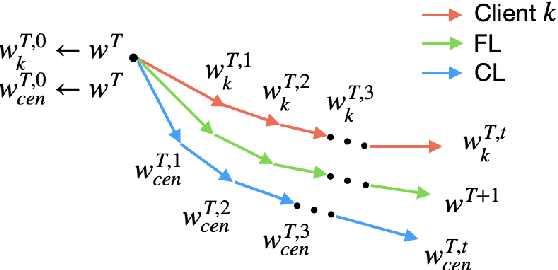

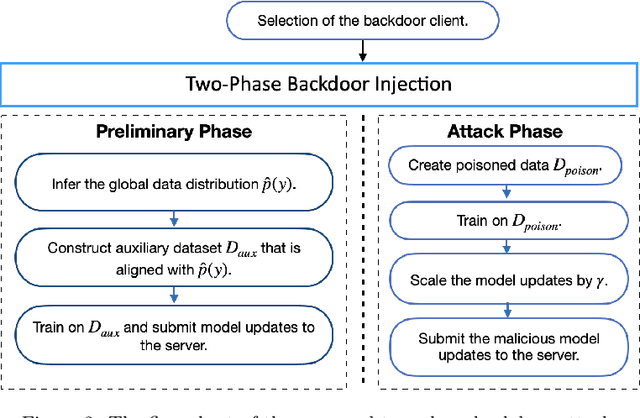
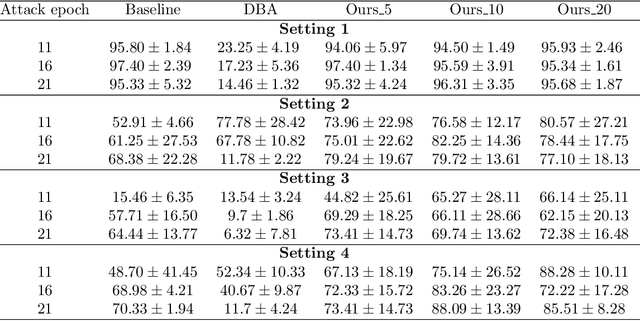
Abstract:Due to the distributed nature of Federated Learning (FL), researchers have uncovered that FL is vulnerable to backdoor attacks, which aim at injecting a sub-task into the FL without corrupting the performance of the main task. Single-shot backdoor attack achieves high accuracy on both the main task and backdoor sub-task when injected at the FL model convergence. However, the early-injected single-shot backdoor attack is ineffective because: (1) the maximum backdoor effectiveness is not reached at injection because of the dilution effect from normal local updates; (2) the backdoor effect decreases quickly as the backdoor will be overwritten by the newcoming normal local updates. In this paper, we strengthen the early-injected single-shot backdoor attack utilizing FL model information leakage. We show that the FL convergence can be expedited if the client trains on a dataset that mimics the distribution and gradients of the whole population. Based on this observation, we proposed a two-phase backdoor attack, which includes a preliminary phase for the subsequent backdoor attack. In the preliminary phase, the attacker-controlled client first launches a whole population distribution inference attack and then trains on a locally crafted dataset that is aligned with both the gradient and inferred distribution. Benefiting from the preliminary phase, the later injected backdoor achieves better effectiveness as the backdoor effect will be less likely to be diluted by the normal model updates. Extensive experiments are conducted on MNIST dataset under various data heterogeneity settings to evaluate the effectiveness of the proposed backdoor attack. Results show that the proposed backdoor outperforms existing backdoor attacks in both success rate and longevity, even when defense mechanisms are in place.
Adversarial FDI Attack against AC State Estimation with ANN
Jun 26, 2019



Abstract:Artificial neural network (ANN) provides superior accuracy for nonlinear alternating current (AC) state estimation (SE) in smart grid over traditional methods. However, research has discovered that ANN could be easily fooled by adversarial examples. In this paper, we initiate a new study of adversarial false data injection (FDI) attack against AC SE with ANN: by injecting a deliberate attack vector into measurements, the attacker can degrade the accuracy of ANN SE while remaining undetected. We propose a population-based algorithm and a gradient-based algorithm to generate attack vectors. The performance of these algorithms is evaluated through simulations on IEEE 9-bus, 14-bus and 30-bus systems under various attack scenarios. Simulation results show that DE is more effective than SLSQP on all simulation cases. The attack examples generated by DE algorithm successfully degrade the ANN SE accuracy with high probability.
 Add to Chrome
Add to Chrome Add to Firefox
Add to Firefox Add to Edge
Add to Edge